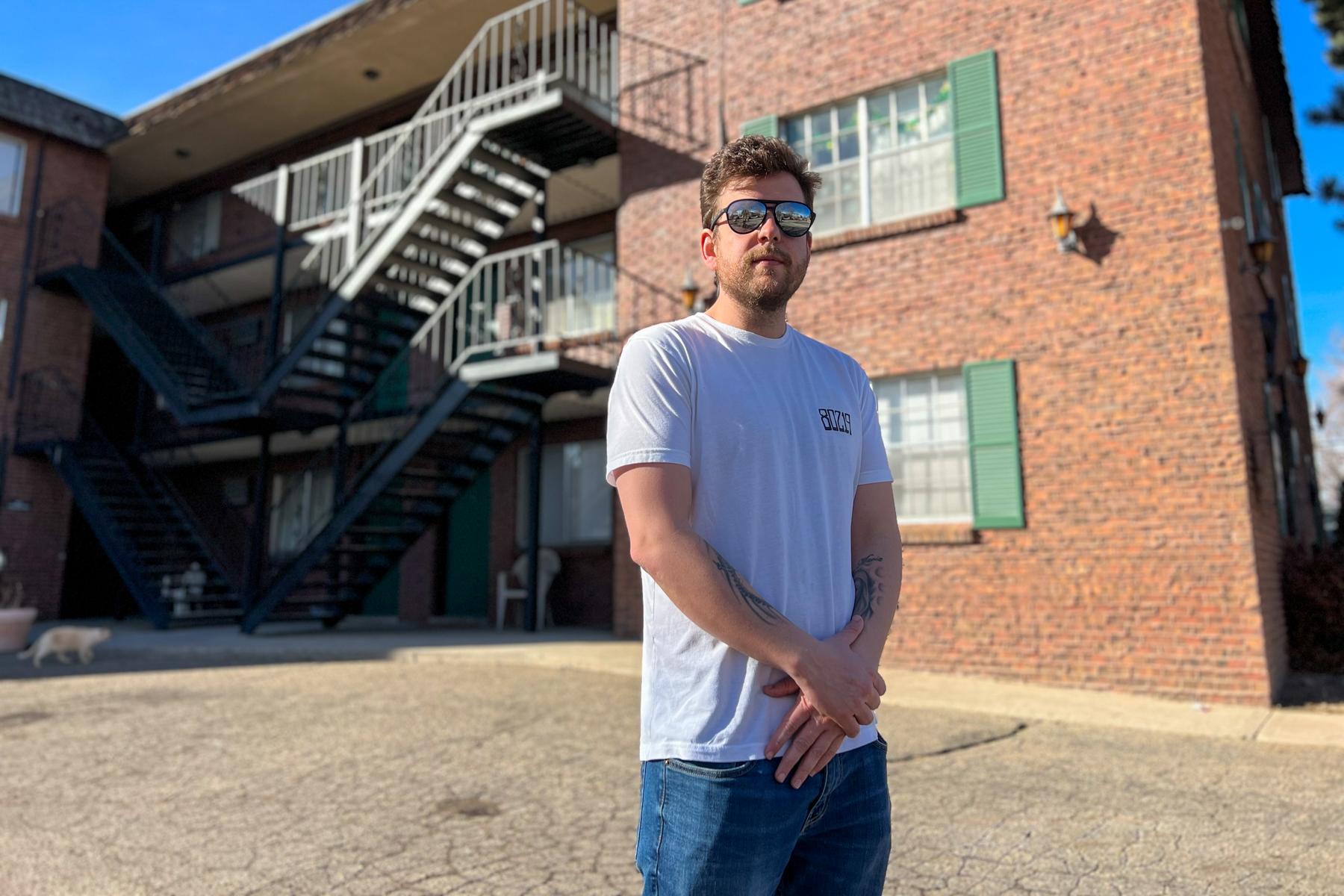
A proposal to allow rent control in Colorado passed the state House with flying colors, winning the votes of nearly two-thirds of the chamber’s members. It was a win for progressive Democrats, who are trying to dismantle the state’s longstanding ban on rent regulations.
But its course in the state Senate could go much differently, as supporters of rent control brace for a tougher fight.
The bill’s next step is the Senate’s Local Government & Housing Committee. Democrats hold only a 4-3 majority on the panel and one of those members, Sen. Dylan Roberts of Avon, remains unconvinced of the policy.
“I want to hear from local community leaders on how they think this would help or hurt,” he said in a recent interview. “I want to hear from private developers, nonprofit homebuilders, people who are trying to solve the affordable housing crisis in Colorado and how this could impact their work as well.”
The rent regulation bill was originally expected to be heard in the Senate committee this week, but it hasn’t yet been scheduled, Roberts said on Tuesday.
“On controversial bills like this, (committees) can be choke points and that certainly could play out in the Senate,” acknowledged Rep. Javier Mabrey, a sponsor of the bill.
The proposal would not create any rent regulations directly. Instead, it would allow local governments to pass their own laws for rent control, also known as rent stabilization.
In the House, sponsors won widespread support in part because they added what Mabrey describes as “guardrails” to the policy.
Under the amended bill, Cities would have to exempt new construction — anything less than 15 years old — from their rent control laws. They would also have to allow controlled rents to rise by at least three percentage points more than the rate of inflation each year. And landlords would be allowed to raise rents even further to recoup expenses for building projects.
“I think we worked in a collaborative way with some of our colleagues who had concerns with the bill as drafted to make a compromise that tamped down… the alarm that this was going to stifle new construction,” Mabrey said.

But in the Senate, which has smaller Democratic margins and more closely divided committees, the bill will need more unity among Democrats in the face of Republican opposition. And many doubters remain.
Roberts and others say they’re still concerned about potential unintended consequences, including the idea that rent regulations could negatively affect the housing market.
“It is clear that one of the major solutions has to be building more affordable and attainable housing for Coloradans,” he said. “And so I don't want to pass a policy that on the other side could disincentivize building and disincentivize people from (offering housing in) the long-term rental market.”
Sen. Roberts is a close ally of Gov. Jared Polis’ administration. Polis dislikes rent control, seeing it as a potential obstacle to his goal of encouraging the development of new housing and saying that he’s “skeptical” that the bill will help create affordability.
The supporters of the rent control bill have tried to bridge the gap. They argue that rent stabilization is a short-term solution that will prevent extreme rent hikes, helping people to stay in their communities while the housing market stabilizes.
Studies of rent regulations around the country have turned up mixed results about their effects.
For example, a study in San Francisco found that large numbers of landlords have scraped and redeveloped their properties in order to escape rent regulation, reducing the supply of affordable units.
But Mabrey and his cosponsors argue that rent regulations can be designed to avoid that pitfall. They point to research in New Jersey, where more generous rent controls have been found to have little effect on new development or housing quality.
“The actual data from communities that have rent stabilization paints a different picture than sort of the theory behind it,” said Mabrey, a first-year lawmaker.
While the bill faces skepticism, one prominent Democrat said that the sponsors are making progress, thanks to the amendments.
“There are pretty significant guardrails, if a community does want to implement it. I think that probably lowers the temperature quite a bit,” said Senate President Steve Fenberg. “So, I think it'll be a less contentious debate, but I'm sure it will still be a vigorous one.”









